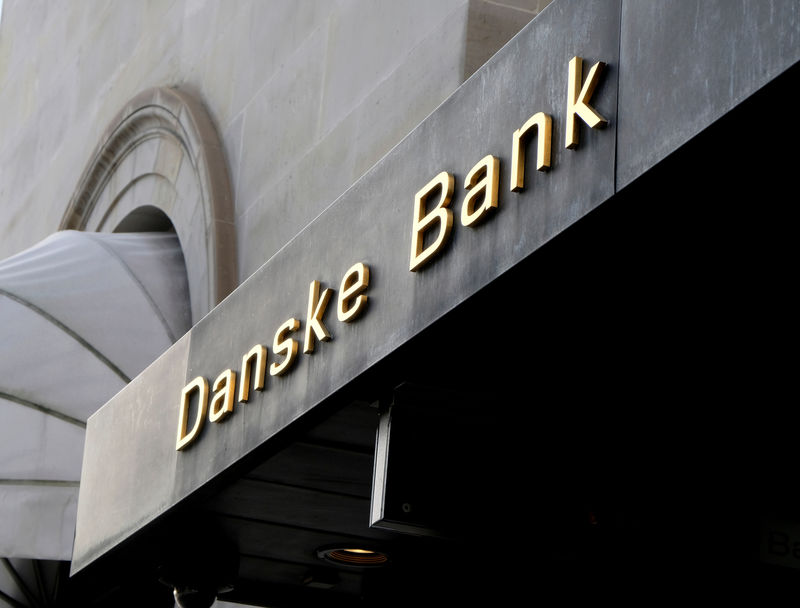By Nikolaj Skydsgaard
COPENHAGEN (Reuters) - Danske Bank (CO:DANSKE) shares fell more than 4% on Friday after the troubled lender said its annual profit would come in at the low end of forecasts, and unveiled plans to get costs and compliance under control by 2023.
Denmark's biggest lender has seen thousands of customers flee and its chief executive depart since reports emerged in 2017 of its involvement in one of the world's biggest money-laundering scandals via its Estonia branch.
The bank now expects annual net profit to come in at the lower end of its previously announced 13 billion to 15 billion Danish crown ($1.9-$2.2 billion) range.
That followed an announcement earlier this month it had initiated a hiring freeze to cope with rising compliance costs and a tough business environment, which has also prompted two cuts to its annual outlook this year.
The softer guidance came despite a 21% rise in third-quarter profits announced on Friday, above analysts' expectations.
"We saw a good underlying business with high customer activity and lending growth, but overall, our performance is under pressure," chief executive Chris Vogelzang said in a statement.
The bank will spend 1.5-2 billion crowns next year on cost management and digitalization, which it expects will result in a return on shareholders' equity of 5-6% next year.
The measure fell to 9.8% last year from 13.6% in 2017, and Danske said it is targeting a move back toward 9-10% by 2023.
Danske shares were trading 4.1% lower at 0921 GMT. Shares have lost about two-thirds of their value since money-laundering allegations against the bank gained pace in March last year and are trading near a 7-year low.
"Everyone needs a strategy, but I don't think the patience of market participants reaches all the way to 2023. I think investors would have liked to see changes happen at a faster pace," Handelsbanken analyst Thomas Eskildsen told Reuters.
"To avoid a further drop in profitability, they have to take drastic measures now."
Danske said it would aim for a cost to income ratio in "the low 50s" by 2023. That came in at 58.5% in the first nine months.
Operating expenses rose by 2% in the first nine months of 2019 due to higher compliance costs and anti-money laundering activities.
"We need to be a substantially more effective bank," chief financial officer Jacob Aarup-Andersen told Reuters. He said the bank would "attack" non-employee related costs such as travel and consultancy expenses and general procurement.
It will have fewer employees by 2023, he said, but could not elaborate on which of the bank's divisions might see job cuts.
As a consequence of the money-laundering scandal, Danske has seen around 18,900 customers leave the bank in the last nine months.
"We are of course sorry that they are leaving and of course it has an economic effect, but in the larger picture, the customer outflow does not have a significant impact on our numbers," Aarup-Andersen said.

Separately on Friday, Russia's central bank said that it had revoked the license of Danske's Russian unit. Danske said this was "according to plan" after it said in February it would close banking activities in Russia and the Baltics.